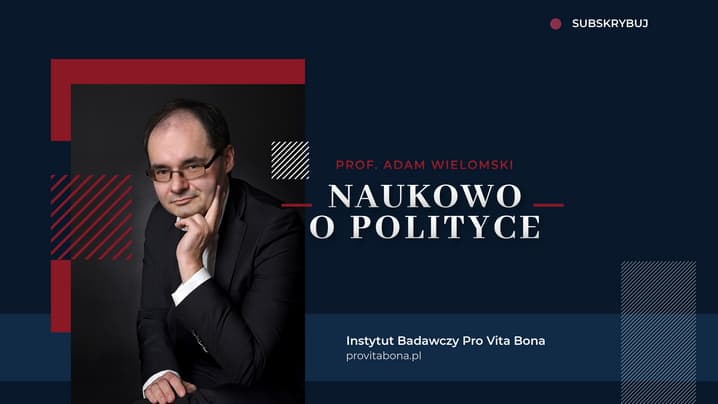Almighty God: Our sons, pride of our nation, this day have set upon a mighty endeavor, a struggle to preserve our Republic, our religion, our civilization and to set free suffering humanity….and we know that by thy grace, and the righteousness of our cause, our sons will triumph.”
Who wrote those words? Someone from the Alt-Right? A white nationalist, perhaps?
In fact, they were composed personally by President Franklin D. Roosevelt as a D-Day prayer and read to the nation in a radio address on the evening of June 6, 1944. They exemplify the high-water mark of a confident mid-20th century American liberalism that did not hesitate to attach the possessive pronoun “our” to concepts such as nation, religion, civilization, culture, and freedom.
The conceptual core of liberalism has been drastically altered since the halcyon days of FDR, Truman, and JFK. The reaction of mainstream 21st century liberalism to President Trump’s historic Warsaw speech clearly reveals what today’s progressives value and what they debase. Thus, the president’s speech (besides presenting a clear vision of democratic sovereignty and a broad understanding of what constitutes the West), has the added advantage of having flushed out, for all to see, what progressive liberals really think of the institutions and ideals that have for centuries been at the center of any decent society.
When President Trump concluded his speech stating, “Our freedom, our civilization, and our survival depend upon [the] bonds of history, culture, and memory” and forthrightly declared “let us all fight like the Poles—for family, for freedom, for country, and for God”—the proponents of mainstream liberalism reacted with dismay and disgust. They bristle against all that “God and Country” talk and with unabashedly positive references to Western Civilization.
And so they came after the president’s conception of the West—not only from the fringes of the Far Left, but from the mainstream of American liberalism—“news” stories in the New York Times; Peter Beinart and James Fallows at the Atlantic; Jeet Heer from The New Republic; Lawrence Summers, E.J. Dionne, Anne Applebaum, Richard Cohen, Eugene Robinson, and the editorial board of the Washington Post; William Galston, the Wall Street Journal‘s token liberal commentator; and many others.
We were told, the president’s speech was “dark,” “negative,” and “nativist.” For Peter Beinart, Trump’s “West is a racial and religious term” and “His white nationalist supporters will understand exactly what he means.” James Fallows sees echoes of the Nuremberg rallies and is reminded of the Nazi propagandist Leni Riefenstahl. Richard Cohen declares that on the plane to Warsaw, “President Trump opened the door and threw out American values.” Jeet Heer fulminates that Trump’s rhetoric “is meant to conjure blood-soil-nationalism.” Eugene Robinson thought Trump’s speech “might have been appropriate” for a time when “Europe’s great powers held dominion for ‘lesser’ peoples around the globe.” Lawrence Summers agrees with “the fears of those” who believe that the President’s “conduct” in Europe “is currently the greatest threat to American national security.”
What a Simple Google Search Would Show
Perhaps the silliest critique of Trump’s speech comes from Molly McKew (formerly with the Podesta group, the American Enterprise Institute, and an advisor to Georgian President Saakashvili.) Writing in Politico, McKew insists that Trump’s references to defending “civilization,” “history and religion,” “traditional values” and “sovereignty” parallel Putin’s worldview. Trump, she writes with contempt, “repeatedly spoke of souls and God.”
Further, McKew criticizes Trump “[going] so far as to say, ‘We put faith and family, not government and bureaucracy at the center of our lives.’” According to McKew this is just like “Putin [who] frequently refers to spiritual tradition as a core part of identity . . . [and lauds] the ‘ideals of the family.’” Apparently, if Putin says 2 plus 2 equals 4, an American president is supposed to say it’s really five. If Putin claims to be for God and Country, we must endorse the devil and treason.
Behind McKew’s smears there is the real issue of Putin making inroads with social conservatives in the West by appearing to champion traditional institutions and values against leftist activism in the EU. The situation was made worse by the Obama administration’s actions, promoting initiatives and groups working against traditional conservative European social and family policy and by collaborating closely with George Soros and leftist NGOs on these “progressive” cultural issues (e.g., abortion, LGBT, radical feminism, etc.)
If McKew had done so much as a Google search, she would have found one of the earliest and clearest responses to Putin’s challenge on the social values front came from Stephen K. Bannon in his (widely available) Vatican conference speech in the summer of 2014. Bannon noted that Putin was attempting to influence social conservatives by claiming to support traditional values and that “we have to be very much on guard” against Putin’s machinations. “Because at the end of the day, I think Putin and his cronies are really a kleptocracy, that are really an imperialist power that wants to expand,” Bannon said.
Given Bannon’s prescient understanding of Putin’s anti-Western goals, it is absurd to suggest that the Warsaw foreign policy vision that he apparently had some role in developing was in tune with Putin’s governing philosophy.
Trump Presents an Inclusive West
Interestingly (and, for many, ironically) the West outlined by Trump in the Warsaw speech is broader and more inclusive than the pinched secular and exclusionist West presented by Western progressives. The Trumpian version includes Christianity, the Judeo-Christian ethical tradition, and our classical patrimony of Socratic questioning, as well as the Enlightenment and modernity.
On the other hand, the progressive version of the West, or more preferably for liberals, the post-Western “global community,” often pits a militant and narrow secularism against traditional Christian and Orthodox Jewish faiths and long accepted cultural and family values (although progressive secularism often makes an exception for Islamic practices).
Indeed, the once almost universal concept of a “Judeo-Christian West” is put into scare quotes and mocked as a Bannon trope by E.J. Dionne (a practicing Catholic) as he excoriates Trump’s Warsaw framework in the Washington Post. Like Tocqueville (and Leo Strauss), but unlike Voltaire (and American liberals and EU elites), Trump’s speech portrays traditional religious belief as fully compatible, and indeed complementary, with modern liberal democracy.
Perhaps, not surprisingly then, the establishment center-right almost unanimously praised Trump’s speech. The day after the speech the editors of the Wall Street Journal lauded the president for “taking a clear stand against the kind of gauzy globalism and vague multiculturalism represented by the worldview of, say, Barack Obama and most contemporary Western intellectuals.” Charles Krauthammer declared, “this is the best speech he’s given. It was very Reaganesque.” Michael Barone found similarities to the great presidential speeches in Berlin of Reagan in 1987 and John F. Kennedy in 1962. The editors of National Review praised Trump’s defense of the West, noting, “This is not about race. It is one of the obvious achievements of Western civilization that its values and norms . . . have spread throughout the world, and wherever they have taken hold have contributed to the advance of human liberty and welfare.”
Democratic Sovereignty vs. Post-Democratic Bureaucracy
The 21st century Left in Europe, and to an extent in the United States, is often described as post-national and postmodern, seeking to move beyond the nation-state and the rational norms of modernism towards a more global and antinomian future.
The Left could also be considered Post-Western, as its elites have “deconstructed” the idea of the West using the ideological tools of postmodernism and multiculturalism. This deconstruction has made Western leaders for the past decade or so hesitant explicitly to articulate a public defense of our civilization. Twenty years ago, foreign policy scholar and Swarthmore professor James Kurth predicted in The National Interest, “The real clash of civilizations will not be between the West, and one or more of the Rest. It will be between the West and the Post-West, within the West itself.”
We see this clash being played out today between EU elites attempting to expand their supranational bureaucratic authority and independent nation-states within the EU, such as Poland who are fighting to preserve their democratic sovereignty. In other words, the Poles are insisting on the right of a free people to rule themselves. And Trump to his credit has given them aid and comfort. This desire for independence and sovereignty was the impetus for the British people’s decision to withdraw from the European Union.
Trump’s speech was criticized by a former Clinton State Department official for not endorsing the EU. For years, the U.S. position has been on autopilot, mindlessly advocating more European integration meaning more power to the Brussels bureaucracy and less to the nation-states. Todd Huizinga, a 20-year veteran of the U.S. Foreign Service, has written the definitive work for understanding the European Union. In The New Totalitarian Temptation, Huizinga captures the essence of the EU as “a soft utopia,” a proposed secular heaven on earth, based on the ideology of “global governance.” This means it is inherently at odds with the concept of democratic sovereignty and, thus, not surprisingly, often in tension with nations that take self-government seriously such as the United States, Poland, and Israel.
“After sixty-five years,” Huizinga writes, “the EU has conclusively shown itself to be inherently undemocratic, unaccountable and unresponsive to the voters.” Put otherwise, the framework of the EU is post-democratic.
Restoring “Government by Consent of the Governed”
The time for the United States to promote more EU integration is long past, and it appears the Trump administration may have put an end to this policy. There are, after all, competing visions of a free, prosperous Europe. While the Merkel-Macron framework promotes more centralization in Brussels, both Margaret Thatcher and Charles de Gaulle advocated a more decentralized Europe of democratic nation-states. Significantly, Trump did reassure the Poles and warn the Russians by strongly endorsing NATO, which is an intergovernmental alliance of nation-states, not a transnational pan-European institution like the EU.
The chief organs of the EU constitute an administrative state that rules without the consent of the different peoples of Europe. A perfect example of this problem is the EU’s migration policy. The EU leadership backed by the governments (but not necessarily the people) of Germany and France have insisted that all EU member-states take a fixed quote of migrants/refugees from the developing world.
The Visegrad nations of Poland, Hungary, Slovakia, and the Czech Republic (now Czechia) are resisting this EU diktat. The stakes for liberal democracy could not be higher. What is at issue is that old Lockean liberal notion of “government by consent of the governed.” Clearly, if democratic sovereignty (that is democratic self-government) means anything at all, it is the right of a free people to determine for themselves who may be residents and citizens in their own country.
EU elites, Merkel, and their transnational progressive allies, are attempting to strip government by consent of the governed from the peoples of Central Europe and force new populations upon them without their consent. This is a moral argument and Trump, the Poles, the Hungarians, the Slovaks and the Czechs are on the side of the angels—the side of “Philadelphian Sovereignty,” that is, the side of the republican principles of the Declaration of Independence and the Constitution of the United States.
In short, “We, the People” decide who we shall admit within our borders. These fundamental issues are not decided for us—and against our consent—by foreign leaders and institutions.
William Galston wrote in the Wall Street Journal that “along with Hungary’s Victor Orban, the current Polish government is Europe’s leading threat to liberal democracy.” Galston could not be more wrong. The threat to democracy comes from the transnational EU elites and the enforcers of the EU administrative state in Germany and France. These are the same nations, after all, that several years ago, forced the ouster of democratically elected leaders in Italy and Greece.
Trump’s Warsaw speech has given hope to the peoples of Central Europe and crucially reiterated the core Enlightenment doctrine of “government by consent of the governed.” If Steve Bannon and Steven Miller had anything to do with formulating this new strategic outlook of democratic sovereignty, consensual government, and affirmation of the Judeo-Christian-Enlightenment basis of Western Civilization, then perhaps those persistent conservative critics of Bannon and Miller ought to rethink their Pavlovian carping about these two gentlemen.



Szczególnie ujmujące są te judaistyczno-chrześcijańskie wartości – ten sojusz ortodoksyjnych żydów i chrześcijan. Autor używa często określeń post – zachód i post-demokracja. Może powinien zacząć używać terminu post-chrześcijaństwo (terminu post-judaizm nie musi – u ortodoksyjnych jeśli chodzi o chrześcijan, a szczególnie katolików nic się nie zmienia, dalej obowiązuje modlitwa poranna – Błogosławiony jesteś Ty, Haszem, Boże nasz, Królu Świata, który nie uczyniłeś mnie gojem).
Zamiast pochwał Oświecenia i amerykańskiej konstytucji potrzebujemy więcej realizmu i konserwatyzmu (nie chodzi o amerykański „konserwatyzm”).
A co do przemówienia Trumpha to napisałem na innym portalu tak:
What do you read, my lord?
Words, words, words.
Oby Polska nie wyszła na tym dealu, tak jak polscy robotnicy pracujący dla Trumpa przy Trump Tower.